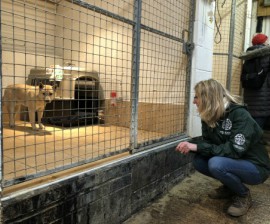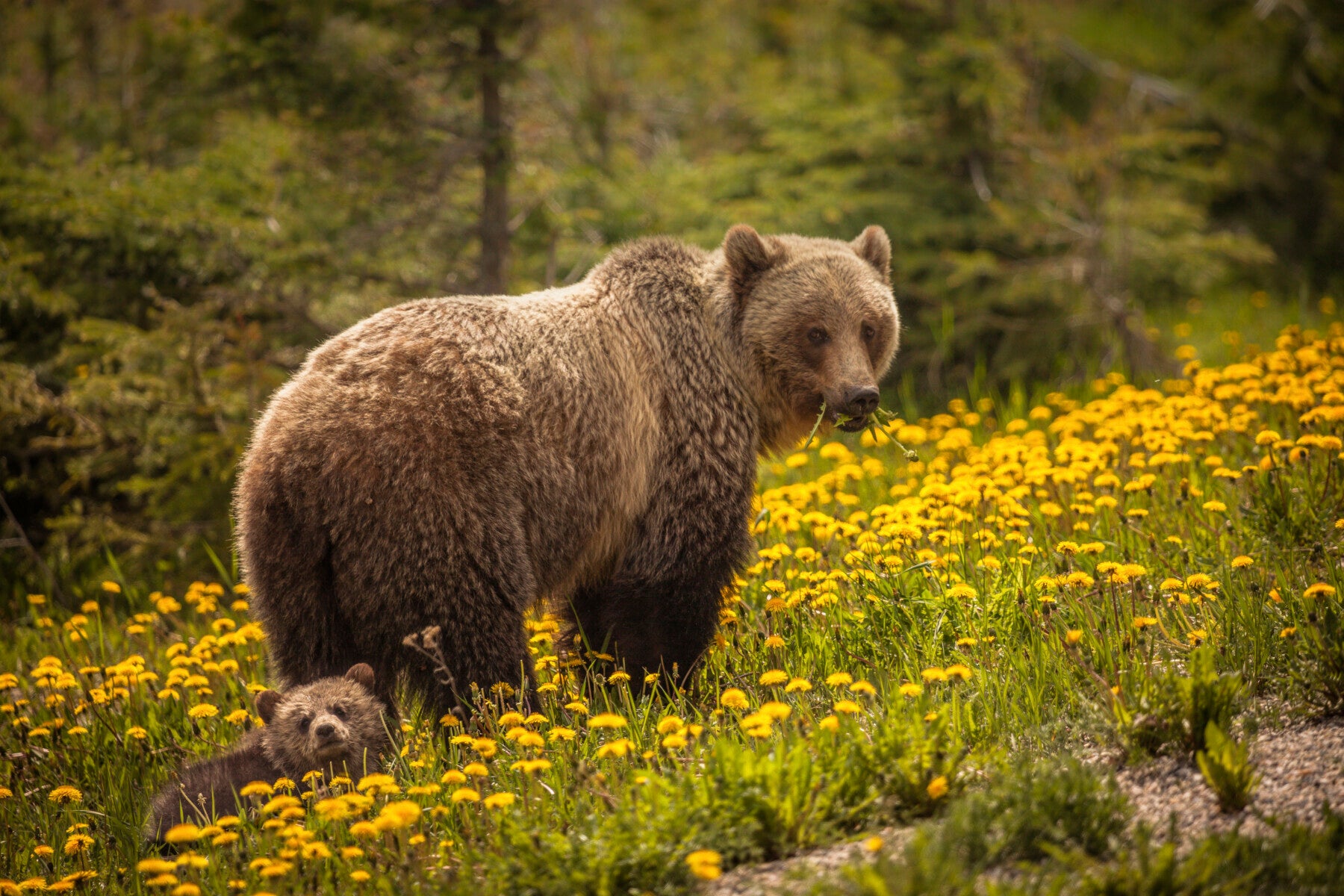London—British consumers are being misled into buying real fur from fox, rabbit, chinchilla and mink, falsely advertised as fake fur, an investigation by Humane Society International UK and Sky News has revealed.
The investigation found trusted online retailers such as Boohoo, Amazon and Not On The High Street all selling items such as bobble hats, keychains, scarves, shoes and coats advertised as faux fur when laboratory tests revealed them to be real animal fur.
Many of these items have deceptively low price points; life is cheap on fur farms, with animals enduring appalling deprivation, and this means that real fur trim often costs the same or even less than faux fur.
Claire Bass, executive director of Humane Society International UK, said: “The amount of fake faux fur online is truly shocking, with even trusted retailers mis-selling real animal fur as synthetic. It is appalling that British shoppers, who are actively choosing not to buy real fur because of the terrible animal suffering, are being misled into buying the very same fur products they’re trying to avoid. The combination of trusted brands, cheap prices, and items described as “faux” or “100% acrylic”, means many people will be justifiably horrified to discover they’ve inadvertently bought animal fur. Consumers rightly expect brands to sell what they say they’re selling, so urgent action is needed to stop this insidious creep of fur through the back door.”
Animal lover Jayne Webster got in touch with HSI to report concerns about the key chain that she bought from T.K. Maxx after being assured it was faux fur by T K Maxx staff. HSI sent the keychain off for testing and found it to be made of rabbit fur. Jayne said: “As a company who proudly boasts that they have not sold fur or angora products since 2003, I would assume that TK Maxx takes a strong ethical stance on this issue. So when I found out that the fur pom-pom I bought was actually made of rabbit fur I was extremely disappointed and concerned. I am aware of the horrific suffering that animals on fur farms go through and would never want to buy real fur, I don’t know how companies can get away with this.”
Fake faux fur items include:
- T.K. Maxx, fox fur coat
- Boohoo, mink fur earrings
- Boohoo, rabbit fur shoes
- Miss Bardo, fox fur hat
- Amazon, rabbit fur children’s shoes
- Not On The High Street, rabbit fur keychain
- Groupon, rabbit fur keychain
- Etsy, mink fur earrings
Around the world in countries such as the U.S., France, Poland and China, animals on fur farms are subjected to terrible conditions. Beautiful wild animals are kept their entire lives in small, barren cages, physically and mentally deprived, before being killed and skinned for their fur. Wild animals such as coyotes fair no better, caught in agonising traps for hours or even days before being shot.
The vast majority of the British public are against wearing fur. A 2016 YouGov poll shows 9 out of 10 Brits believe that it is unacceptable to buy and sell real fur, averaged across nine species. Although fur farming was outlawed in the UK on moral grounds in 2000, and EU regulations ban fur from domestic cats, dogs or commercial seal hunts, the UK still imports and sells fur from a range of other species such as fox, rabbit, mink, coyote, raccoon dog, and chinchilla.
HSI is campaigning for the British Government to make the United Kingdom a fur-free zone by extending the cat, dog and seal fur bans to include all fur-bearing species. As a member of the EU single market, under rules relating to free movement of goods the UK is not currently at liberty to ban the import of animal fur, which is farmed in several European countries. But Brexit could give the government the freedom to reflect the public’s distaste for all fur and close our borders fully to this cruel and outdated trade.
Bass continued: “The government banned fur farming as unethical in the UK more than ten years ago, but perversely we have since been importing that same cruelty from fur farms overseas. The vast majority of British people believe that animal fur has no place in our high streets and wardrobes, and would support a UK ban. Mandatory, clear labelling of all fur is urgently needed to stop consumers being misled, but ultimately to properly protect both animals and consumers, the government must use the opportunity presented by Brexit to ban all UK fur imports.”
Frequently Asked Questions:
- There is no legal requirement to use the specific word “fur” on items containing real fur. EU regulations do require items defined as “textile products” to carry the confusing wording “contains non-textile parts of animal origin” but as well as not clearly telling consumers it means “real animal fur”, in practice this wording requirement is rarely adhered to at all.
- Products sold online are exempt even from the above confusing wording requirement, and footwear or non-garment accessories such as handbags and keychains are also excluded.
- Under consumer protection legislation, it’s technically illegal to mislead. However, the regulation – with respect to the sale of animal fur – is very poorly enforced, and ‘an honest mistake’ is considered a legitimate defence and so retailers are rarely prosecuted.
- HSI believes that all products containing real animal fur (including clothing, footwear, accessories etc) should be clearly labelled in plain English. Such labelling is already in place in the US and Switzerland, and should include the animal species (both common and scientific name); country of origin (where the animal was bred/trapped and killed); how the animal was reared and killed (trap caught or reared in a wire cage, for example).
Media contact: Harriet Barclay, HBarclay@hsi.org, +44 (0)7794354596
Notes:
- 1. YouGov opinion poll commissioned by HSI UK. All figures, unless otherwise stated, are from YouGov Plc. Total sample size was 2051 adults. Fieldwork was undertaken between 9th and 12th September 2016. The survey was carried out online. The figures have been weighted and are representative of all GB adults (aged 18+).The poll listed nine species, including domestic dog, mink, seal, fox and rabbit, and asked people whether or not they found it acceptable for fur from these animals to be bought and sold in the UK. Results reveal that less than 10% of people feel it is acceptable to be able to buy and sell products containing domestic dog fur (7%), seal fur (8%), and cat fur (9%), respectively, and indeed such imports are banned by law. But critically the poll also shows similar distaste for fur items from other species that can still be legally sold here – only between 8 and 12% of people said that they found it acceptable to buy or sell fur from foxes (12%), mink (12%), chinchilla (9%), raccoon dogs (8%) and coyotes (8%) (the last of which are not farmed, but wild-trapped). Rabbit fur had the highest approval rating, but is still only acceptable to one in five people despite being one of the most commonly found fur trim items on the high-street.
- 2. Items in this investigation were purchased online between 01.07.17 and 14.09.17 and tested by fibre analysis expert Dr Phil Greaves from Microtex Laboratory, a lab used by Trading Standards for fur analysis.










